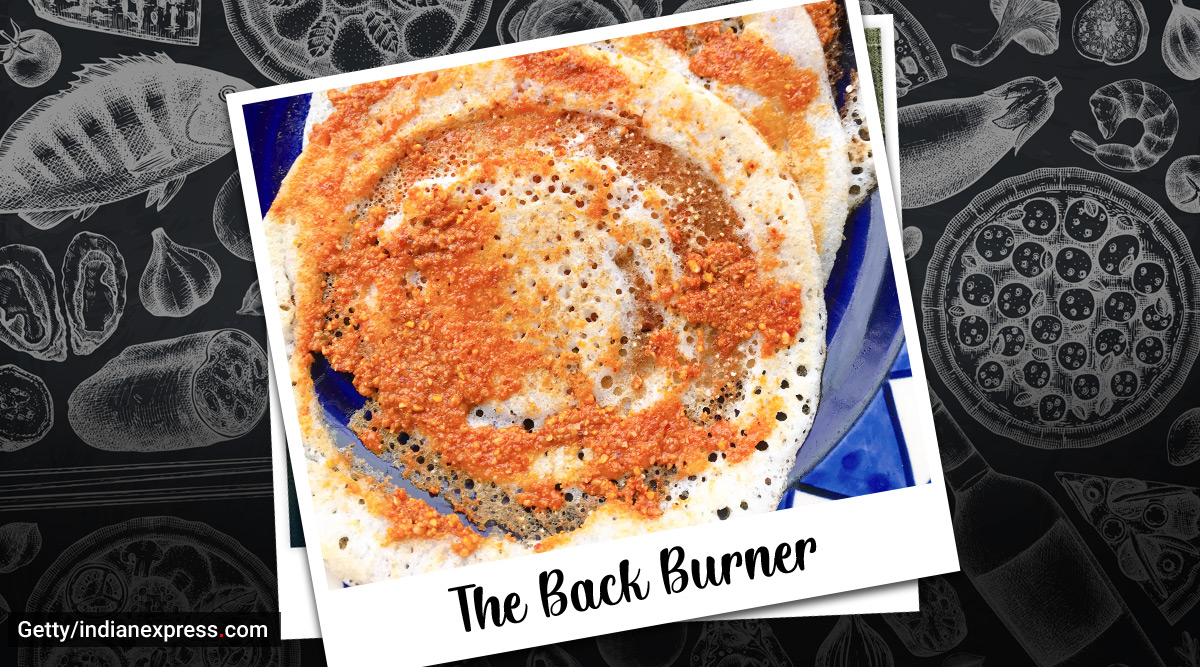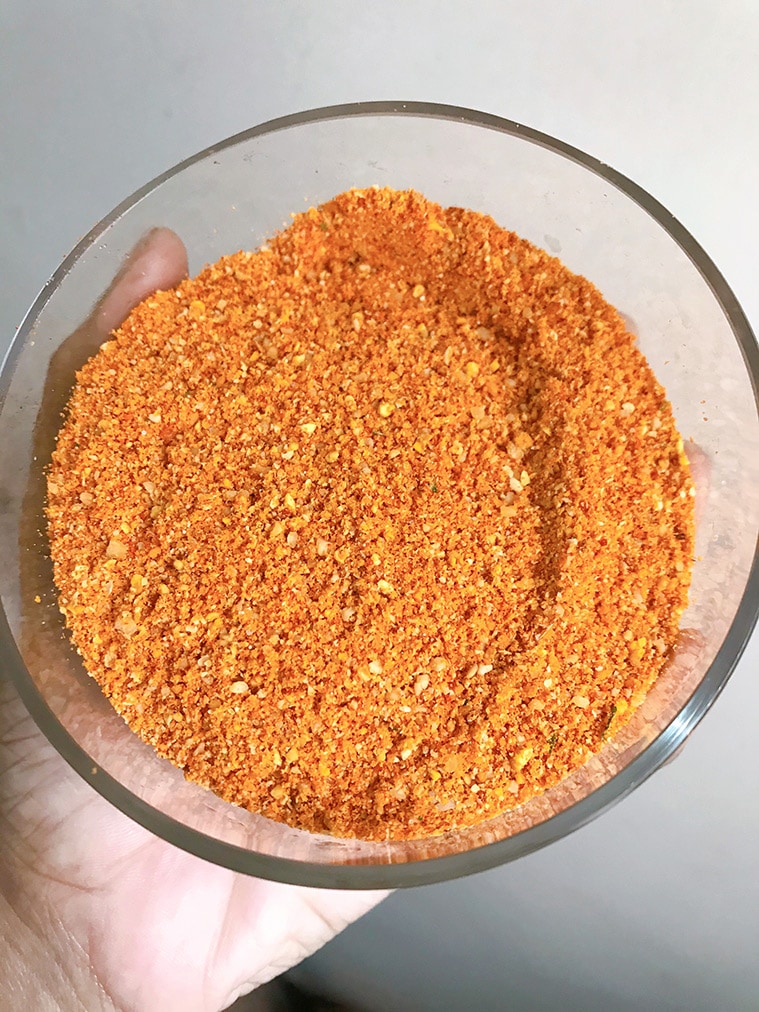 Mix sesame podi with ghee or coconut oil and eat with dosas or idlis. (Photo credits: Pooja Pillai)
Mix sesame podi with ghee or coconut oil and eat with dosas or idlis. (Photo credits: Pooja Pillai)Another week and another easy-peasy recipe to add to your collection of great podis. This time, it’s sesame podi (or ellu podi in Malayalam and Tamil). It’s very similar to the molagapodi recipe that I’ve shared here before, except that this one has a lot more sesame (well, obviously).
The reason I’ve shared so many podi recipes until now is because they are just about the most convenient thing to have around the house. While I enjoy the occasional cooking project, I don’t like to spend all my free time in the kitchen. My rule for everyday cooking is ‘Do It in 30 Minutes’. If it’s going to take me longer than that, then I’d rather somebody else do it. So podis are super helpful to have at hand, when all you feel like making is some dosas or a little plain rice.
Ingredients:
White sesame – 1 cup
Urad dal – ¾ cup
Chana dal – ¼ cup
Dried red chillies – 6-7
Curry leaves – 10-12
Asafoetida – ½ tsp
Salt, to taste
 Sesame podi is a good thing to have at hand for days you’re feeling too lazy to cook a full meal. (Photo credits: Pooja Pillai)
Sesame podi is a good thing to have at hand for days you’re feeling too lazy to cook a full meal. (Photo credits: Pooja Pillai)
Method:
On a low flame, dry roast, separately, urad dal and chana dal, till they are fragrant and start to change colour.
Next, dry roast the red chillies, till they start to puff up slightly and you begin to catch their aroma.
Follow this by dry roasting the curry leaves, till they start to curl up a little.
Finally, dry roast the sesame seeds. They’ll turn golden and start to pop, at which point turn off the flame and add the asafoetida, which will cook in the residual heat of the sesame seeds and release its aroma.
Allow all the ingredients to cool down to room temperature and then grind to a powder. Be sure to pulse and stop the mixer grinder when doing this. Otherwise the jar will start to heat up, causing the sesame seeds to release oil.
Mix salt in the podi and store in a clean jar.
Mix with ghee or coconut oil and serve with dosa, idli or uthappam. This podi also goes well with rice.
Note:
You can use black sesame seeds instead of white sesame seeds. The podi will be a lot darker and the flavour will be a lot stronger.
Depending on how hot you want the podi to be, you can add more red chillies, or try a hot variety like the guntur.
Always roast on a low flame. You’d think it takes really long, but it doesn’t.
[The Back Burner is a weekly blog that will talk about all things food (with recipes, of course)]